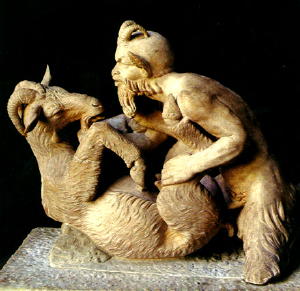Page 5
As it is claimed to be unphilosophical to inquire into first causes, scientists now occupy themselves with considering their physical effects. The field of scientific investigation is therefore bounded by physical nature. When once its limits are reached, enquiry must stop, and their work be recommenced. With all due respect to our learned men, they are like the squirrel upon its revolving wheel, for they are doomed to turn their “matter” over and over again. Science is a mighty potency, and it is not for us pigmies to question her. But the “scientists” are not themselves science embodied any more than the men of our planet are the planet itself. We have neither the right to demand, nor power to compel our “modern-day philosopher” to accept without challenge a geographical description of the dark side of the moon. But, if in some lunar cataclysm one of her inhabitants should be hurled thence into the attraction of our atmosphere, and land, safe and sound, at Dr. Carpenter’s door, he would be indictable as recreant to professional duty if he should fail to set the physical problem at rest.
For a man of science to refuse an opportunity to investigate any new phenomenon, whether it comes to
him in the shape of a man from the moon, or a ghost from the Eddy homestead, is alike reprehensible.
Whether arrived at by the method of Aristotle, or that of Plato, we need not stop to inquire; but it is a fact that both the inner and outer natures of man are claimed to have been thoroughly understood by the ancient andrologists. Notwithstanding the superficial hypotheses of geologists, we are beginning to have almost daily proofs in corroboration of the assertions of those philosophers.
They divided the interminable periods of human existence on this planet into cycles, during each of which mankind gradually reached the culminating point of highest civilization and gradually relapsed into abject barbarism. To what eminence the race in its progress had several times arrived may be feebly surmised by the wonderful monuments of old, still visible, and the descriptions given by Herodotus of other marvels of which no traces now remain. Even in his days the gigantic structures of many pyramids and world-famous temples were but masses of ruins. Scattered by the unrelenting hand of time, they are described by the Father of History as “these venerable witnesses of the long bygone glory of departed ancestors.” He “shrinks from speaking of divine things,” and gives to posterity but an imperfect description from hearsay of some marvellous subterranean chambers of the Labyrinth, where lay — and now lie — concealed, the sacred remains of the King-Initiates.
We can judge, moreover, of the lofty civilization reached in some.
Page 6
periods of antiquity by the historical descriptions of the ages of the Ptolemies, yet in that epoch the arts and sciences were considered to be degenerating, and the secret of a number of the former had been already lost. In the recent excavations of Mariette-Bey, at the foot of the Pyramids, statues of wood and other relics have been exhumed, which show that long before the period of the first dynasties the Egyptians had attained to a refinement and perfection which is calculated to excite the wonder of even the most ardent admirers of Grecian art. Bayard Taylor describes these statues in one of his lectures, and tells us that the beauty of the heads, ornamented with eyes of precious stones and copper eyelids, is unsurpassed. Far below the stratum of sand in which lay the remains gathered into the collections of Lepsius, Abbott, and the British Museum, were found buried the tangible proofs of the hermetic doctrine of cycles which has been already explained.
Dr. Schliemann, the enthusiastic Hellenist, has recently found, in his excavations in the Troad, abundant evidences of the same gradual change from barbarism to civilization, and from civilization to barbarism again.
Why then should we feel so reluctant to admit the possibility that, if the antediluvians were so much better versed than ourselves in certain sciences as to have been perfectly acquainted with important arts, which we now term lost, they might have equally excelled in psychological knowledge? Such a hypothesis must be considered as reasonable as any other until some countervailing evidence shall be discovered to destroy it.

Moe is the founder of GnosticWarrior.com. He is a father, husband, author, martial arts black belt, and an expert in Gnosticism, the occult, and esotericism.






![How one in the province of the Northumbrians, rose from the dead, and related many things which he had seen, some to be greatly dreaded and some to be desired [Circ. 696 A.D.] | Book 5 | Chapter 11 How one in the province of the Northumbrians, rose from the dead, and related many things which he had seen, some to be greatly dreaded and some to be desired [Circ. 696 A.D.] | Book 5 | Chapter 11](https://www.gnosticwarrior.com/wp-content/plugins/contextual-related-posts/default.png)

